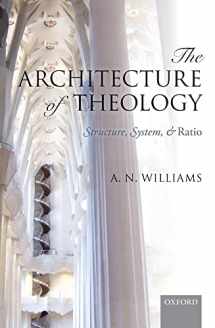
The Architecture of Theology: Structure, System, and Ratio
Book details
Summary
Description
The Architecture of Theology presents a fresh reading of Christian theology, re-interpreting discussions of theological method and considering them in light of contemporary philosophical debates. A. N. Williams re-evaluates the traditional theological warrants (scripture, tradition, and reason) and the concept of systematic theology, arguing that Christian theology is inherently systematic, reflecting the rationality and relationality of its two chief subjects, 'God and other things as they are related to God'(Aquinas). The roles of the theological warrants are assessed, showing how they are necessarily interdependent. Contemporary philosophical discussions of the structure of reasoning are also examined; these have conventionally contrasted foundationalist and coherentist accounts. A contemporary consensus has emerged, however, of a chastened foundationalism or hybrid foundationalism-coherentism, in light of which arguments are understood both as reasoning from foundational propositions and as gaining plausibility from the coherence of claims with one another.
The Christian tradition anticipated these developments: theological arguments exhibit a dual structure, with propositions underwritten to some extent by their dependence on scripture and tradition and to some extent by their coherence with one another in integrated webs, or systems. Christian theology is therefore shown to be systematic in its fundamental structure, whether or not a given argument forms part of a 'systematic theology'. The systematicity of Christian theology is related to its subject matter, 'God and other things as they are related to God'. Theology's two chief subjects (God and humanity) are characterised by rationality and relationality.
These are also the qualities of Christian theology itself: it is a double mimesis, reflecting in its very structures of reasoning its subject matter.
The order, harmony and coherence of those structures, however, have an aesthetic appeal which has the potential to appeal for its very beauty, rather than its truth. Williams presents a careful examination of the tradition of theological aesthetics, asking whether the beauty of systematic structures counts for or against theological truth.


We would LOVE it if you could help us and other readers by reviewing the book
Book review



